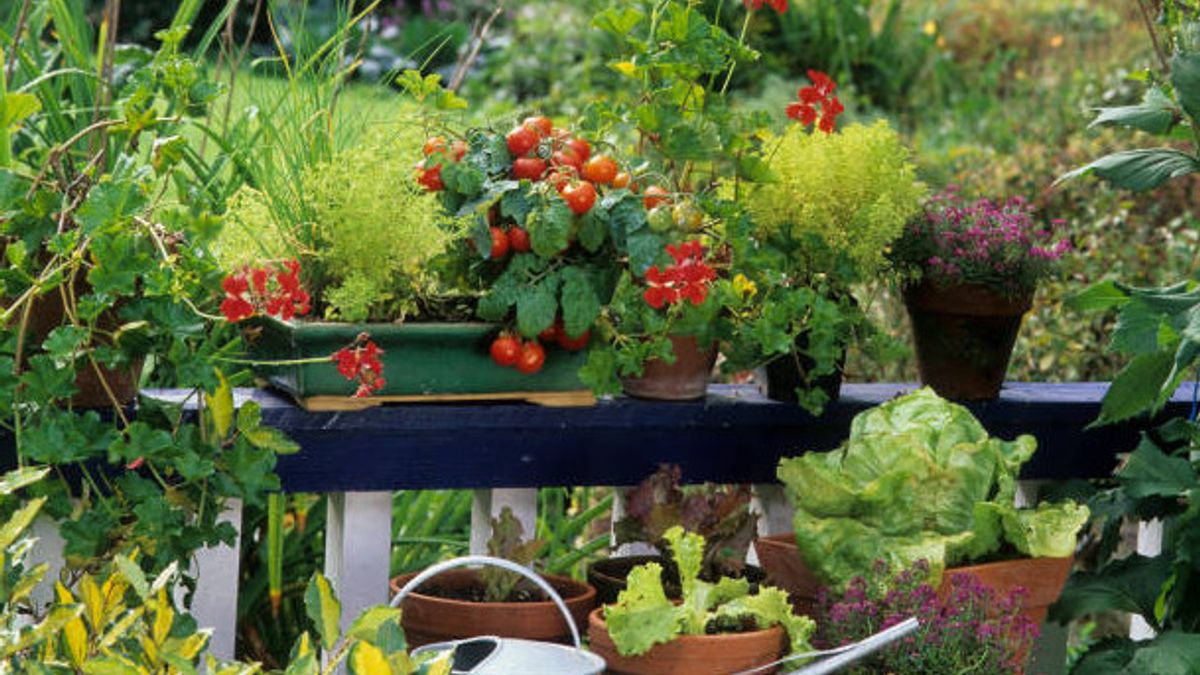JAKARTA - Scientists are encouraging people to recycle their urine into vegetable gardens. They claim that this can be a useful resource for fertilizing vegetables or plants.
Farmers spend $128,000 per year on synthetic fertilizers to fertilize their crops, but urine can be an economical alternative because it contains nitrogen and phosphorus that are important for plant growth and promotion.
Cowfoke is currently being used to help grow crops, but scientists argue that urine is not so different and could be an environmentally friendly alternative rather than being thrown into the toilet.
Nitrogen found in urine pollutes the sea which causes the gas to overgrowing in the coral reefs and poisons marine life - and scientists share a mixture to use urine in your home garden.
Adults on average throw away 132 gallons of urine each year that can be converted into odorless and economical fertilizers for plants.
"Our age is commensurate with gold," Gravina researcher P. Rodriguez told ScienceNorway. "Think about all the fertilizers we miss now. "It's time we start collecting and utilizing our own waste."
Researchers are developing toilets that can separate urine from the remaining water and have started testing it in Bahir Dar, Ethiopia.
Once separated, urine can be dried and converted into cheap, odorless pellets that can be spread on agricultural land to cultivate crops.
Although this concept may not be of interest to most people, Anne Spurkland, professor and medical researcher at the University of Oslo, told ScienceNorway that it was 'completely safe.'
Spurkland says there is a way to implement this method at home by mixing one piece of urine with nine parts of water and spraying the liquid onto the vegetables with a narrow-nosed watering can.
"The soil category turns nitrogen into a new building block that plants use," said Spurkland.
SEE ALSO:
While this idea may sound strange, researchers at the University of Michigan confirmed in a 2020 study that urine fertilizer can be used without fear that it could spread antibiotic resistant infections.
Scientists fear that people who give urine to farmers can have urinary tract infections (ISKs) that can contain DNA from bacteria.
The study found that if urine was not distributed freshly and incubated for 10 hours, there would be a 99 percent decrease in the antibiotic resistant gene.
"Humans have been collecting urine and using it as fertilizer for a very long time, but then in the west it really stops with the discovery of the exhaust system," said Dr. Krista Wigginton, co-autor from the study to The Guardian.
We're just trying now to figure out with this infrastructure system, how do we back down and think differently about what goes into this disposal system and capture some valuable products before [they] get mixed and diluted with everything else?
The English, Chinese, Japanese, Arabic, and French versions are automatically generated by the AI. So there may still be inaccuracies in translating, please always see Indonesian as our main language. (system supported by DigitalSiber.id)


















